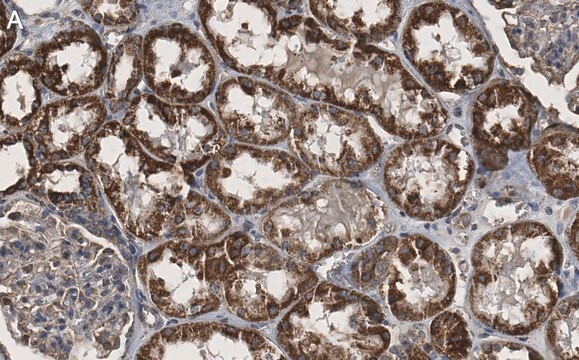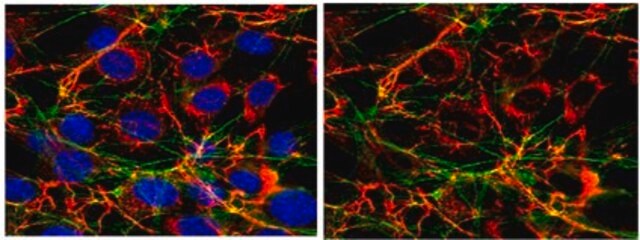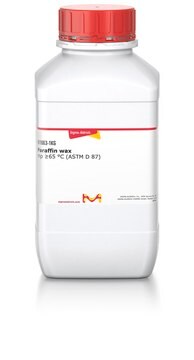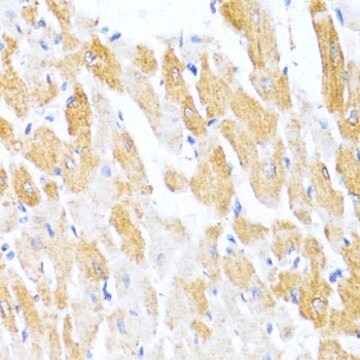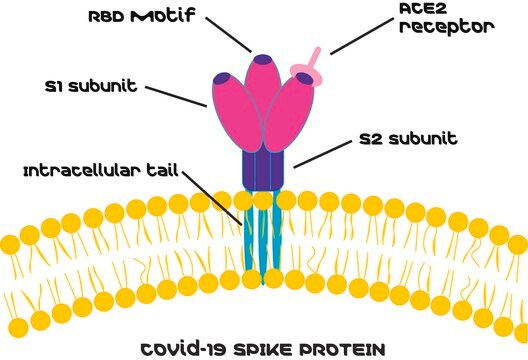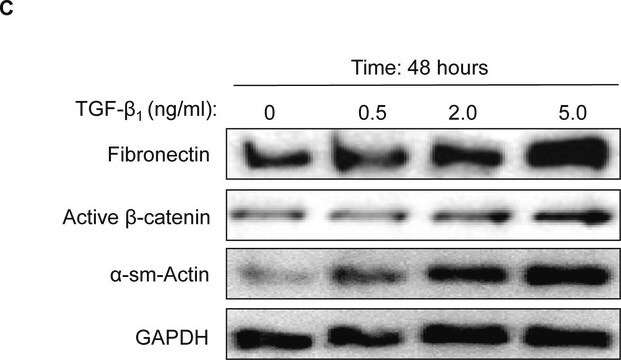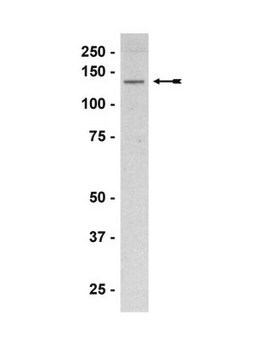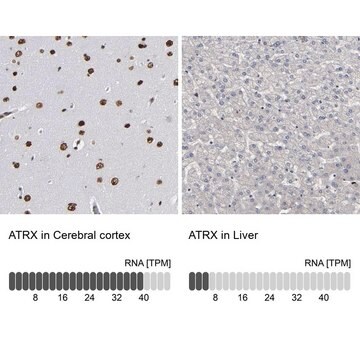SAB4200401
Anti-CTGF antibody, Mouse monoclonal
clone CTGF-14, purified from hybridoma cell culture
Synonyme(s) :
Monoclonal Anti-CCN family member 2, Monoclonal Anti-CCN2, Monoclonal Anti-CTGF antibody produced in mouse, Monoclonal Anti-Connective tissue growth factor, Monoclonal Anti-HCS24, Monoclonal Anti-Hypertrophic chondrocyte-specific protein 24, Monoclonal Anti-IBP-8, Monoclonal Anti-IGF-binding protein 8, Monoclonal Anti-IGFBP-8, Monoclonal Anti-IGFBP8, Monoclonal Anti-Insulin-like growth factor-binding protein 8, Monoclonal Anti-NOV2
About This Item
Produits recommandés
Source biologique
mouse
Conjugué
unconjugated
Forme d'anticorps
purified from hybridoma cell culture
Type de produit anticorps
primary antibodies
Clone
CTGF-14, monoclonal
Forme
buffered aqueous solution
Poids mol.
antigen ~38 kDa
Espèces réactives
human
Concentration
~1.0 mg/mL
Technique(s)
immunoprecipitation (IP): suitable
western blot: 0.25-0.5 μg/mL using whole extracts of HEK-293T cells over-expressing CTGF.
Isotype
IgG1
Numéro d'accès UniProt
Conditions d'expédition
dry ice
Température de stockage
−20°C
Modification post-traductionnelle de la cible
unmodified
Informations sur le gène
human ... CTGF(1490)
Description générale
Spécificité
Immunogène
Application
Actions biochimiques/physiologiques
Forme physique
Stockage et stabilité
Clause de non-responsabilité
Vous ne trouvez pas le bon produit ?
Essayez notre Outil de sélection de produits.
En option
Code de la classe de stockage
10 - Combustible liquids
Point d'éclair (°F)
Not applicable
Point d'éclair (°C)
Not applicable
Faites votre choix parmi les versions les plus récentes :
Certificats d'analyse (COA)
Vous ne trouvez pas la bonne version ?
Si vous avez besoin d'une version particulière, vous pouvez rechercher un certificat spécifique par le numéro de lot.
Déjà en possession de ce produit ?
Retrouvez la documentation relative aux produits que vous avez récemment achetés dans la Bibliothèque de documents.
Notre équipe de scientifiques dispose d'une expérience dans tous les secteurs de la recherche, notamment en sciences de la vie, science des matériaux, synthèse chimique, chromatographie, analyse et dans de nombreux autres domaines..
Contacter notre Service technique